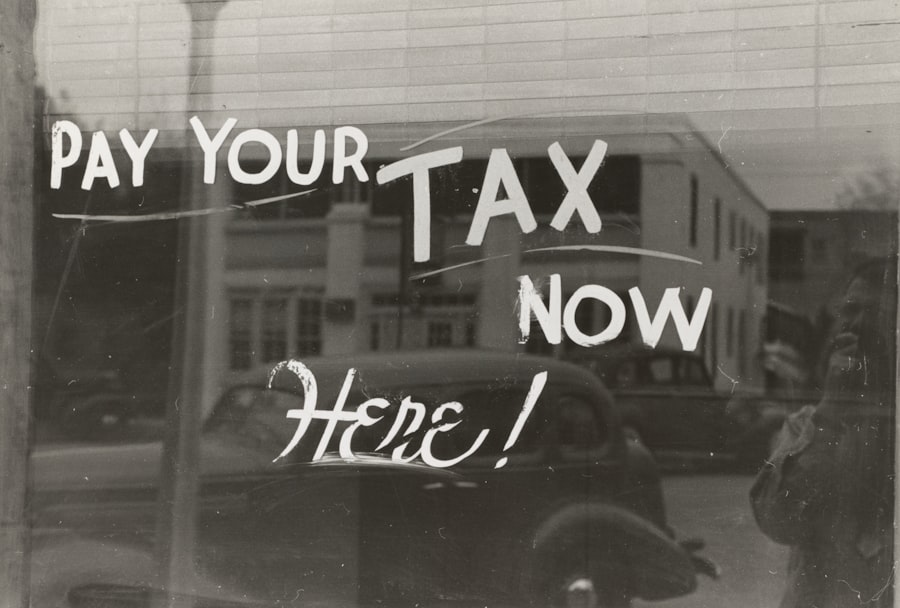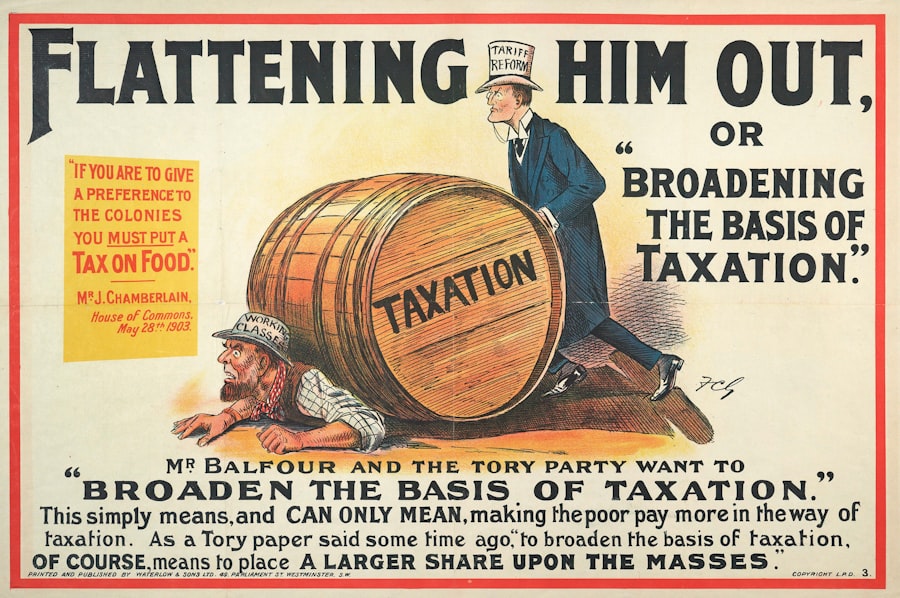Navigating the complexities of tax preparation can be a daunting task for many individuals and businesses alike. The tax code is intricate, filled with nuances that can significantly impact one’s financial situation. A qualified tax preparer plays a crucial role in ensuring that taxpayers not only comply with the law but also maximize their potential refunds or minimize their liabilities.
The stakes are high; errors in tax filings can lead to audits, penalties, and even legal repercussions. Therefore, finding a competent tax preparer is not just a matter of convenience; it is an essential step in safeguarding one’s financial health. Moreover, a qualified tax preparer brings a wealth of knowledge and experience to the table.
They stay updated on the latest tax laws, regulations, and changes that could affect their clients. This expertise is particularly valuable during tax season when new legislation may be enacted that alters deductions, credits, or filing requirements. By leveraging the skills of a professional, taxpayers can navigate these changes more effectively, ensuring that they take full advantage of available benefits while remaining compliant with the law.
Key Takeaways
- Finding a qualified tax preparer is important for accurate and timely tax filing
- Searching for a tax preparer near you can be done through online directories or recommendations from friends and family
- Qualities to look for in a tax preparer include experience, credentials, and a good reputation
- When interviewing a potential tax preparer, ask about their experience with similar tax situations and their fee structure
- Hiring a professional tax preparer can save time, reduce stress, and minimize the risk of errors in tax filing
How to Search for a Tax Preparer Near You
Finding a tax preparer in your vicinity can be accomplished through various methods, each offering unique advantages. One of the most straightforward approaches is to seek recommendations from friends, family, or colleagues who have had positive experiences with tax professionals. Personal referrals often provide insights into the preparer’s reliability, communication style, and overall effectiveness.
Additionally, local community boards or social media groups can serve as platforms for gathering recommendations and reviews from individuals within your area. Another effective method is to utilize online resources. Websites such as the National Association of Tax Professionals (NATP) or the American Institute of CPAs (AICPA) offer directories of certified tax preparers.
These platforms allow users to filter results based on location, qualifications, and specialties. Furthermore, online reviews on platforms like Yelp or Google can provide valuable feedback on various tax preparers’ services. However, it is essential to approach online reviews with a critical eye, as they can sometimes be biased or unrepresentative of the preparer’s overall capabilities.
Qualities to Look for in a Tax Preparer

When evaluating potential tax preparers, certain qualities can indicate their level of professionalism and expertise. First and foremost, credentials matter significantly. Look for preparers who hold recognized certifications such as Certified Public Accountant (CPA), Enrolled Agent (EA), or tax attorney status.
These designations require rigorous training and adherence to ethical standards, providing assurance that the preparer possesses the necessary knowledge to handle complex tax situations. In addition to credentials, effective communication skills are vital. A good tax preparer should be able to explain intricate tax concepts in a manner that is easy to understand.
They should be approachable and willing to answer questions without making clients feel intimidated or overwhelmed. Furthermore, a proactive approach is essential; an ideal preparer will not only react to your inquiries but will also anticipate potential issues and offer solutions before they arise. This level of engagement fosters a collaborative relationship that can lead to better outcomes for your tax situation.
Questions to Ask When Interviewing a Potential Tax Preparer
| Question | Importance |
|---|---|
| What are your qualifications and credentials? | High |
| How do you stay updated with tax laws and regulations? | High |
| Can you provide references from past clients? | Medium |
| What is your experience with my specific tax situation? | High |
| How do you charge for your services? | Medium |
Before committing to a tax preparer, it is prudent to conduct an interview to gauge their suitability for your needs. Start by asking about their experience and qualifications. Inquire how long they have been preparing taxes and whether they specialize in specific areas such as individual returns, small businesses, or international taxation.
Understanding their background will help you assess whether they have the expertise required for your particular financial situation. Another critical question pertains to their fee structure. Tax preparers may charge based on the complexity of the return, a flat fee, or an hourly rate.
It is essential to clarify how they determine their fees and whether there are any additional costs for services such as audit support or amended returns. Transparency in pricing can prevent misunderstandings later on. Additionally, ask about their approach to client communication during the tax preparation process.
A preparer who values regular updates and open lines of communication can significantly enhance your experience.
Benefits of Hiring a Professional Tax Preparer
Engaging a professional tax preparer offers numerous advantages that extend beyond mere compliance with tax laws. One significant benefit is the potential for increased deductions and credits that an untrained individual might overlook. Tax professionals are adept at identifying opportunities for savings that align with current regulations, which can lead to substantial financial benefits for their clients.
Furthermore, hiring a professional alleviates the stress associated with tax preparation. The process can be time-consuming and fraught with anxiety, especially for those unfamiliar with tax codes and regulations. A qualified preparer takes on this burden, allowing clients to focus on other important aspects of their lives or businesses.
Additionally, in the event of an audit, having a professional who understands the intricacies of your return can provide invaluable support and representation.
Understanding the Different Types of Tax Preparers

Tax preparers come in various forms, each offering distinct services tailored to different client needs. Certified Public Accountants (CPAs) are licensed professionals who have passed rigorous examinations and met specific educational requirements. They often provide comprehensive financial services beyond tax preparation, including accounting and financial planning.
Enrolled Agents (EAs) are another category of tax professionals who have earned the right to represent taxpayers before the IRS after passing a comprehensive exam or having relevant experience as former IRS employees. EAs specialize in taxation and are well-versed in various tax issues, making them valuable allies during audits or disputes with the IRS. Additionally, there are non-credentialed preparers who may have varying levels of experience and expertise.
While some may be highly knowledgeable, others may lack formal training or understanding of complex tax issues. It is crucial for taxpayers to assess the qualifications of any preparer they consider hiring to ensure they receive competent service.
Tips for Working Effectively with Your Tax Preparer
To maximize the benefits of working with a tax preparer, establishing a collaborative relationship is essential. Begin by providing all necessary documentation promptly and accurately. This includes income statements, expense records, previous tax returns, and any relevant financial documents.
The more organized and thorough you are in your submissions, the smoother the preparation process will be. Open communication is another key element in fostering an effective working relationship. Be proactive in discussing your financial situation and any changes that may impact your taxes, such as new investments or changes in employment status.
Additionally, don’t hesitate to ask questions if you don’t understand something; a good tax preparer will appreciate your desire for clarity and will be willing to explain concepts until you feel comfortable.
What to Do If You Encounter Issues with Your Tax Preparer
Despite best efforts, issues may arise during the course of working with a tax preparer. If you find yourself facing challenges—whether it’s miscommunication, dissatisfaction with service quality, or concerns about ethical practices—addressing these issues promptly is crucial. Start by having an open conversation with your preparer about your concerns; often, misunderstandings can be resolved through direct communication.
If problems persist or if you suspect unethical behavior—such as failure to file returns or misrepresentation of information—it may be necessary to escalate the matter. Consider reaching out to professional organizations such as the AICPA or state boards of accountancy if your preparer holds relevant credentials. These organizations can provide guidance on how to proceed and may offer avenues for filing complaints if warranted.
In extreme cases where significant financial harm has occurred due to negligence or misconduct by your tax preparer, seeking legal advice may be appropriate. An attorney specializing in tax law can help you understand your rights and options for recourse against unprofessional conduct. Finding a qualified tax preparer is an essential step in managing one’s financial responsibilities effectively.
By understanding how to search for professionals, recognizing key qualities to look for, asking pertinent questions during interviews, and knowing how to work collaboratively with them, taxpayers can navigate the complexities of taxation with greater confidence and ease.


